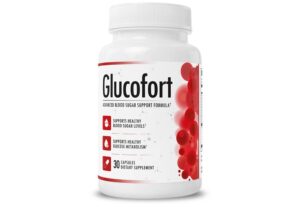Diabetes
What is Diabetes about?
The active oxygene species in Diabetes, Type I Diabetes is caused by the destruction of the pancreatic beta cells responsible for producing insulin in humans.
The diabetogenic process appears to be caused by Immune destruction of the Beta cells:
Part of this process is mediated by white cell production of active oxygen species.
Diabetes can be produced in animals by the drugs alloxan and streptozotocin;
the action mechanisms of these two drugs though different both result in the production of active oxygen species.
Scavengers of oxygen radicals are effective in preventing diabetes in these animal models.
Not only are oxygen radicals involved in the cause of diabetes,
they also appear to play a role in some of the complications
seen in long-term treatment of diabetes. Changes in antioxidants in the diabetic state and their consequences are discussed.
Types of Diabetes:
There are 4 types of Diabetes: Type 1, Type 2, Pre-Diabetes, and Gestational.
Type 1 – Diabetes does not produce any Insulin. Insulin is injected using a Syringe, Pen, or Pump.
Sometimes several times a day while monitoring their blood sugar levels.
Insulin Injections counteract the increase of Carbohydrates which in turn increases the blood glucose in the bloodstream,
insulin is required to breakdown the Glucose to enter the blood cells.
Type 1 – Diabetes Symptoms can be:
-
-
-
Urinating frequently
-
Increased thirst
-
Wetting the bed for people who usually don’t
-
Unintended loss of weight
-
Fatigue and weakness
-
Blurred vision
-
-
Type 2 – Diabetes:
is the most common type and has mostly been diagnosed by age 45.
People with Type 2 can usually produce Insulin but it does not get used efficiently.
Sometimes it can be controlled by Diet and Exercise but not always.
Here are the usual symptoms related to Type 2 Diabetes:
-
-
-
Urinating frequently
-
Increased thirst
-
Unintended loss of weight
-
Fatigue
-
Blurred vision
-
Frequent infections
-
Areas of darkened skin
-
-
With Type 2 Diabetes it is sometimes necessary to take medications to control blood glucose levels and frequently monitor it with a blood Testing kit as shown similarly below:

“As an Amazon Associate I earn from qualifying purchases”
Pre-Diabetes:
Pre-diabetes is where blood glucose levels are high but not high enough and diagnosed as type 2 Diabetes.
Proper Dieting along with weight loss, some lifestyle changes and also, may include medicine to control blood glucose levels and to prevent a type 2 diagnosis.
Gestational Diabetes:
Gestational diabetes is a form of diabetes that usually develops during pregnancy.
Similar to the other forms of diabetes, gestational diabetes can affect how the body actually uses sugar (glucose) and causes an increase in blood sugar.
This form of diabetes can also affect both the pregnancy and also the health of the baby.
Certain hormones are formed within the placenta that can help with the fetus’s development
and will block the insulin that can be formed in the mother’s body but this restricts the amount of insulin the mother receives.
Too much blood glucose from the mother is then given to the fetus, and causes the fetus’s blood glucose levels tend to increase.
So, in this case, the excess blood glucose is then stored as fat and causes health issues for the fetus.
Maintaining a healthy weight and exercising before becoming pregnant will also help prevent Gestational Diabetes.
An Estimated 90% of Gestational Diabetes cases can then return to normal health once the baby is born.
Abstract …..
1. Can people with diabetes drink alcohol safely, and if so, what are the guidelines for doing so?
2. What are the specific symptoms and treatment options for pre-diabetes?
3. How does gestational diabetes affect the health of the baby what are the preventive measures for this condition?
Specific questions range from whether certain drinks are “blood sugar friendly” to carb counting for alcohol, and the effect on blood glucose levels hours later.
The type of alcohol being consumed — wine, beer, mixed drinks, or hard liquor — certainly plays a part in the answers.
Not surprisingly, curiosity seems to pique over the winter holidays, around St. Patrick’s Day in March, and during Alcohol Awareness Month in April each year.
And with the global pandemic boosting alcohol sales significantly, it seems many have had “drinking and diabetes” on the minds much more than ever before.
It’s a universal topic that remains share-worthy at any point.
Lower-carb Drinks and Brews:
Yes, these brews do exist
The lowest-carb beer on the market is Marston’s Resolution, at 85 calories and 1.65 grams of carb per bottle.
According to surveys, “It tastes very refreshing and the double fermentation process makes its carb load almost undetectable.”
This is a UK beer and is hard to find in the United States, it can be purchased online and shipped to the U.S. for a premium fee.
-
-
-
Michelob Ultra, at 95 calories and with 2.6 grams of carb per bottle, is found regularly at American bars. “It doesn’t boast a lot of flavor, much like its counterpart, Natural Light (95 calories, 3.2 carbs). But if you’re looking for options without the high carb load, it’ll do.”
-
A bottle of Amstel Light has 95 calories, 5 carbs.
-
Heineken Premium Light has 99 calories, 7 carbs. These are popular beers and are common in American bars.
-
More “light” options include Corona Light (109 calories, 5 carbs); Bud Light (110 calories, 6.6 carbs); or Sam Adams Light (119 calories, 9.7 carbs).
-
“All three are readily available in most markets and are mellower on your blood sugars than your average high-carb beer.”
-
And if you’re living with diabetes and celiac disease, there are a few gluten-free beers on the market that might work for you: Omission Lager comes in at 140 calories and 11 carbs and is touted as a beer that “pleases all palates, including those of average beer drinkers and craft connoisseurs.”
-
A pint of gluten-free Magner’s Irish Cider is another option, with 125 calories and 9 carbs. This import is now available for purchase at Beverages & More, and through Instacart in the U.S
-
To help you stay on top of diabetes, we’ll send you actionable tips on eating wisely, news on research breakthroughs, and more. the Question Again:
-
-
Can you drink wine with diabetes?
There are some important things you should know:
-
-
-
On the average, wine contains 120 calories and 5g of carbs per glass.
-
Dry white has the least sugar, reds come in a bit higher, and dessert wines are sugary, “just like they sound,” according to Mary Ellen Phipps, a registered dietitian nutritionist who lives with T1D herself.
-
Lower alcohol wines often have more sugar for taste reasons, and you’re best off looking for a varietal with 12.5 percent to 16 percent alcohol to avoid added sugars.
-
This is according to referenced winemaker: Keith Wallace founder of the Wine School of Philadelphia.
-
Location matters: Italian and French wines traditionally have less residual sugar, whereas wines from Oregon, for example, have more sugar added.
-
Don’t drink wine on an empty stomach, have fast-acting glucose on hand, and let at least one person in your party know about your diabetes and how to help in case of hypoglycemia.
-
-
“Wine is good, in so many ways,” Wallace told Diabetes Mine.
“PWDs” have so much stress and wine is a great stress reducer done right, it’s excellent.

Wine contains amounts of Resveratrol which has shown some beneficial effects on insulin secretion, insulin sensitivity, and glucose tolerance, but only in animal models.
Its antioxidant and cardioprotective effects in humans are more well-known in previous trials of resveratrol by certain companies such as:
Pfizer and GlaxoSmithKline, which have focused on the supplement’s anti-aging abilities, have not had promising results.
But like any other type of Alcoholic beverage, it should be controlled in moderation and precautions.
There is plenty of additional information to go with this subject, this is just a summary.
Glucofort:
Glucofort has emerged as one of the most effective blood sugar regulation products available today.
This unique formula works naturally to support efficient glucose metabolism and healthy blood sugar in your body.
This supplement also promises to enhance your energy, vitality, and overall blood health.
Glucofort supports better heart health and may even help you reduce your likelihood of developing various cardiovascular-related conditions.
Long-term intake of this supplement also has the potential to treat diabetes and ease most of the symptoms that come with type 2 diabetes.
As an Amazon Associate, I earn from qualifying purchases.

Does Glucofort work?
These Glucofort pills are quite powerful and can work on their own without requiring that users make any drastic lifestyle changes.
So there is no need to undergo highly intensive workouts or follow any strict nutrition plan to experience any positive benefits with this supplement.
But you should consistently consume these Glucofort capsules to receive all the blood sugar-stabilizing benefits.
Glucofort also supports healthier weight loss as one of the effects
of reducing blood sugar.
As an Amazon Associate I earn from qualifying purchases.
Gaining weight and having more fat stored in your body are real for high blood sugar.
Since Glucofort stabilizes your blood sugar, it means you will have a better chance of losing weight.
Glucofort Ingredients
It is vital to check what ingredients are used in any supplement, especially if you have any allergies.
But understanding what ingredients a dietary supplement uses can help shed light on the benefits to expect from consuming that product.
Glucofort is made using the best quality, local, and foreign natural ingredients it uses an effective mix of minerals, vitamins, and a customized blend.
The proprietary blend in Glucofort contains several ingredients like:
licorice root, bitter melon, juniper berry, cayenne fruit, cinnamon bark, guggul resin, mulberry leaf, and other natural ingredients.
All these ingredients along with the primary ingredients contribute to lowering your blood sugar levels.
“As a ClickBank Affiliate, I may a commission from promoting products”
Another new product just came into view called “Sugar Defender“
Noted for destroying Zombie cells which are damaged cells that refuse to die.
Sugar Defender also reactivates Insulin production thereby lowering blood sugar levels.
“As a ClickBank Affiliate, I may a commission from promoting products”

